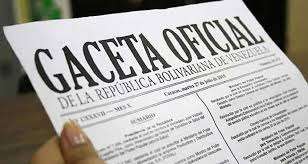The first debate on television about the 135 articles of the Law of Urgent Consideration (LUC) that will be submitted to a referendum between the senator from the Front Amploist Óscar Andrade and the lobbyist Guido Manini Ríos had moments that generated repercussions in the middle of a discussion on issues related to the public safety, housing, education and labor relations.
In a television showdown had little debate and exchange and a lot of individual exhibitions, the two legislators had interventions that generated comments, especially on social networks. From the “astoribergarismo” of Manini to the pregnant owner, a review of the most outstanding moments.
pregnant owner
When the housing axis was discussed, With the focus on the new unsecured lease regime created by the law, the discussion on where to focus, whether on the owner or the tenant, was once again on the table.
From the beginning of the discussion of this law, the coalition and the opposition have had different views on this chapter, and in the debate this was reflected with a hypothetical example of a pregnant woman with young children.
“If a family has to face an eviction and it is a woman who is pregnant, it is a woman who has small children, it is winter, and she has nowhere to go, today, (with) the rental proposal of the LUC, you end up outside”, due to the lack of emergency grounds to avoid eviction. For this reason, for the front runner the argument that this creates “unsecured rent” is “unusual”.
Manini, with the same analogy, replied that “the image of the pregnant woman and her five children who could lose their home sensitizes us all”, but placed it elsewhere: “We can also think that this pregnant woman is the owner of that home, and that this home allows her to make ends meet with her costs, her payments, and that when the tenant does not pay her, it causes serious problems.”
In addition, he analyzed that “That pregnant woman may also be looking for something to rent and has no way of accessing a guarantee, and this law allows that pregnant woman access to housing as well.”
Unions
In the axis of labor relations, the center was the change to the right to strike, which by Article 392 of the LUC regulates the exercise of this right and specifically establishes “the right of non-strikers to access and work in the respective establishments and the right of company management to enter the facilities freely.”
For his part, Andrade regretted that this article was generated “without social dialogue”and pointed against “the philosophy of government” for understanding that undermines the achievements of workers. “It seems that for the government the problem is organized workers”said the legislator.
Manini replied that the LUC guarantees “the right to strike for strikers, work for workers and the right to property for employers”, and focused on the most vulnerable workers who “they cannot give themselves the right to lose their wages” and “they are subjected to physical and psychological violence.”
The lobbyist believed that the workers must work together with employers and denied that the ruling party is against the unions. “Perhaps they have nothing against the unions, but the truth is that they are not noticed”Andrade replied.
Astorbergarism
At the end of the debate, each legislator had two minutes to say goodbye with their final message. Andrade quoted Montesquieu saying that “It does not make a matter fair that is in the law, but it is the other way around, because it is fair it has to be in the law”, and called for a Yes vote for the repeal of the 135 articles to defend the housing, colonization moneyAnd for what Information cannot be withheld from Justice by a single person or from Parliament“.
In his turn, Manini Ríos began by defending the LUC as a “just and necessary” law that “defends the most fragile”. “In the almost 20 months that the law has been in force, it has not generated any of the negative consequences that Senator Andrade says”he continued.
Then he turned to the administrations of the Broad Front, and especially criticized the economic positions of Danilo Astori and Mario Bergarawhich he defined as “Astorbergarism”because “were functional to the most powerful interests”noting that Andrade never opposed his policies.

















